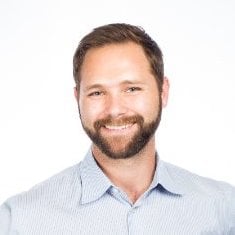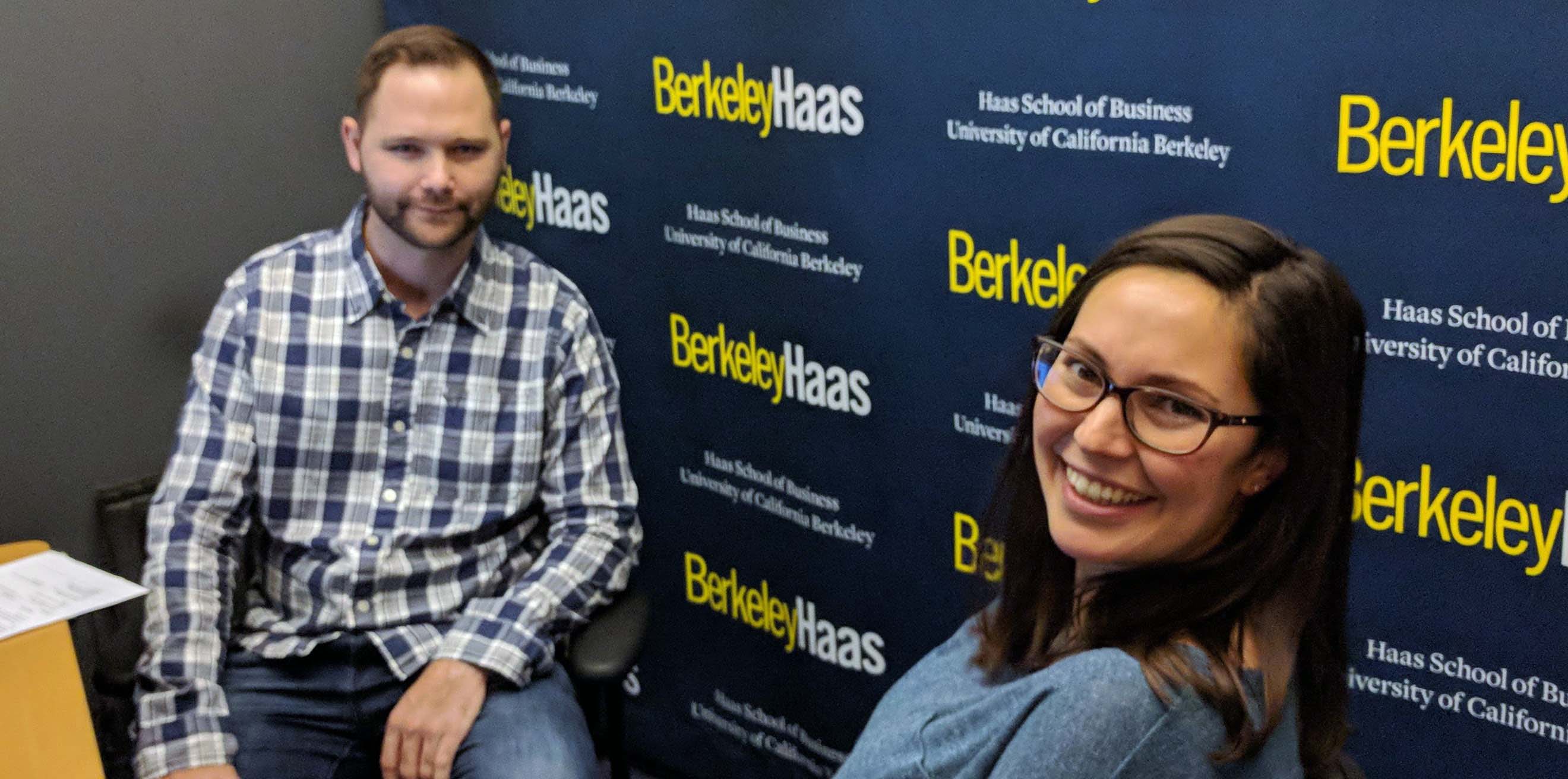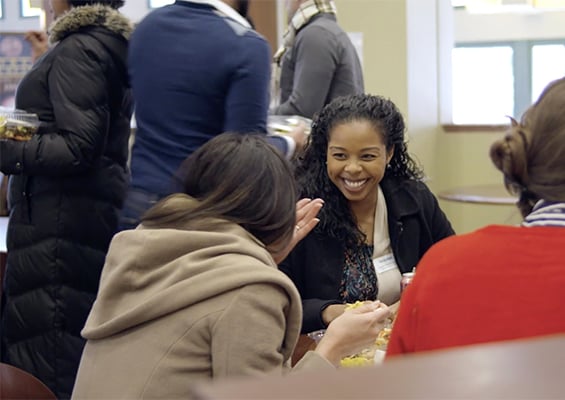Deciding that the MBA application essay was truly a chance to reveal himself as a whole person—beyond his resume and test scores—Brad Shervheim dug deep and made himself vulnerable; It paid off. Brad shares his MBA essay insights in conversation with Eileen Jacob, associate director of admissions for Berkeley Haas MBA Programs for Working Professionals.
Listen to the podcast:
Or read excerpts from the conversation:
Eileen: Hi everyone, I'm Eileen Jacob, the Associate Director of Admissions for our MBA Programs for Working Professionals. Today we're talking about writing your essays for your application to either the Berkeley Haas MBA for Executives or the Evening & Weekend Berkeley Haas MBA Program.
I'm joined today by one of our current students, Brad Shervheim.

Brad: I'm in the 2020 class of the Evening and Weekend Program here at Haas. I'm a Senior Sales Engineer at New Relic, a software company that delivers analytics for websites and software tools.
Eileen: Okay. Brad, your first year on the program is well underway. Looking back, can you talk a little bit about why you wanted to pursue your MBA?
Brad: I've been an individual contributor as an engineer for over nine years. So, getting an MBA will help me with my short-term career goals of breaking into management. My long-term career goals are to potentially pivot into a new role in sales, as a sales director or sales executive or to completely pivot into finance.
Eileen: Great. You also addressed another short-answer question about your fit with the culture here at Berkeley Haas—through the lens of the Defining Leadership Principles. which is another essay question for applicants.
Brad: For that, I wrote about questioning the status quo. I actually grew up in Southern Minnesota in a rural town. My family is mostly blue-collar workers, and the status quo would've actually been for me to graduate from high school and start working immediately. But I was the first person in my family to go to college.

Eileen: Can you talk a little bit about how you felt about the essay portion of the application?
Brad: I think of the essays as an opportunity to differentiate yourself. I really appreciated the fact that I could write something and have someone understand more about me than just the stats on my resume or the check-boxes, etc.
Eileen: That's exactly the purpose of the essays, and there really isn't a "right" answer. We want people to show their personality and share their story and what they're passionate about. And this year, to get more detail about people's personal stories, we've changed the main essay question to ask for a six-word story.
Brad: What exactly is the six-word story?
Eileen: I think the six-word story was originally credited to Ernest Hemingway, where his friends challenged him to write a novel in six words. It does require some out of the box thinking. And then, after putting the six words together, applicants have a chance to elaborate on what their six-word story means to them.
Brad: So it's kind of writing a haiku and then explaining why it's important to you.
Eileen. Yes, and we hope it's a fun way for our applicants to share a little bit more about themselves too.
Brad: Is there a specific topic that you want applicants to cover with the story?
Eileen: We hope that the other parts of your application cover your academics and your work experience and that the six-word story and your essays in general round out who you are. We don't have any expectations of what the topic should be.
Brad, can you talk a little bit about your process for developing an idea and crafting your essay?
Brad: I wanted to express who I am at a deeper level. So, I thought about my family. I thought about my education. I thought about my career. But what stuck out to me the most, was my childhood and some of the difficulties I had to overcome in my life. For me it was volunteering in my community and becoming a board member of the National Alliance on Mental Illness, because mental illness runs in my family.
I tried to be as vulnerable, as much as I could in the essay and share those things that were really personal to me. It was even difficult for me to have people review my essay and proofread it, because I didn't want everyone to learn that much about me. But it was, I think, even more compelling.
Eileen: I'm so glad that you shared that, Brad. Thank you, because that's the goal. We would hope every applicant can put that depth of thought and reflection into the process and ensuring that their genuine voice comes through. How long would you advise candidates to prepare when they're putting their essays together?
Brad: I actually spent several months on my essay. Basically once a week or so, I would spend maybe 10 or 20 minutes just adding items that I had thought of to that essay, and it slowly built out to however many words were required. Then I started editing and slowly iterating on it until it was a final product.
For proofreading the essay, I reached out to peers who had gone through an MBA program themselves. It was great to get a second pair of eyes, because I thought my essay was perfect—and my friend sent back a fully marked up draft. He found all kinds of ways where I could more clearly communicate and convey my ideas.
Eileen: That's what we generally advise candidates to do, because someone who knows you well can really make sure that your personality is coming through. It's also always good to have an extra set of eyes proofread before you submit the final essay.
Thank you so much, Brad, for sharing all of your advice today and more about the process that you went through when writing your MBA essays.
Brad: I'm really glad to have shared my experience.
Looking for more application tips? Check out our guide to crafting your best MBA application, our podcast on preparing for business school entrance exams, and our podcast on choosing between an executive or evening and weekend MBA program. We can also help you banish the GMAT blues with our free ebook.








